Have you ever known someone whose mood completely changes when they start to get hungry? If you can’t think of anyone, walk into your chicken coop on the day that feed is running a little low. Your birds should give you a pretty good example!
Because feed accounts for about 70% of raising domestic birds, it's important to have a basic understanding of nutritional concepts and optimize your feeding strategies. Here's a crash course on nutrition basics.
Backyard Poultry Nutrition Basics
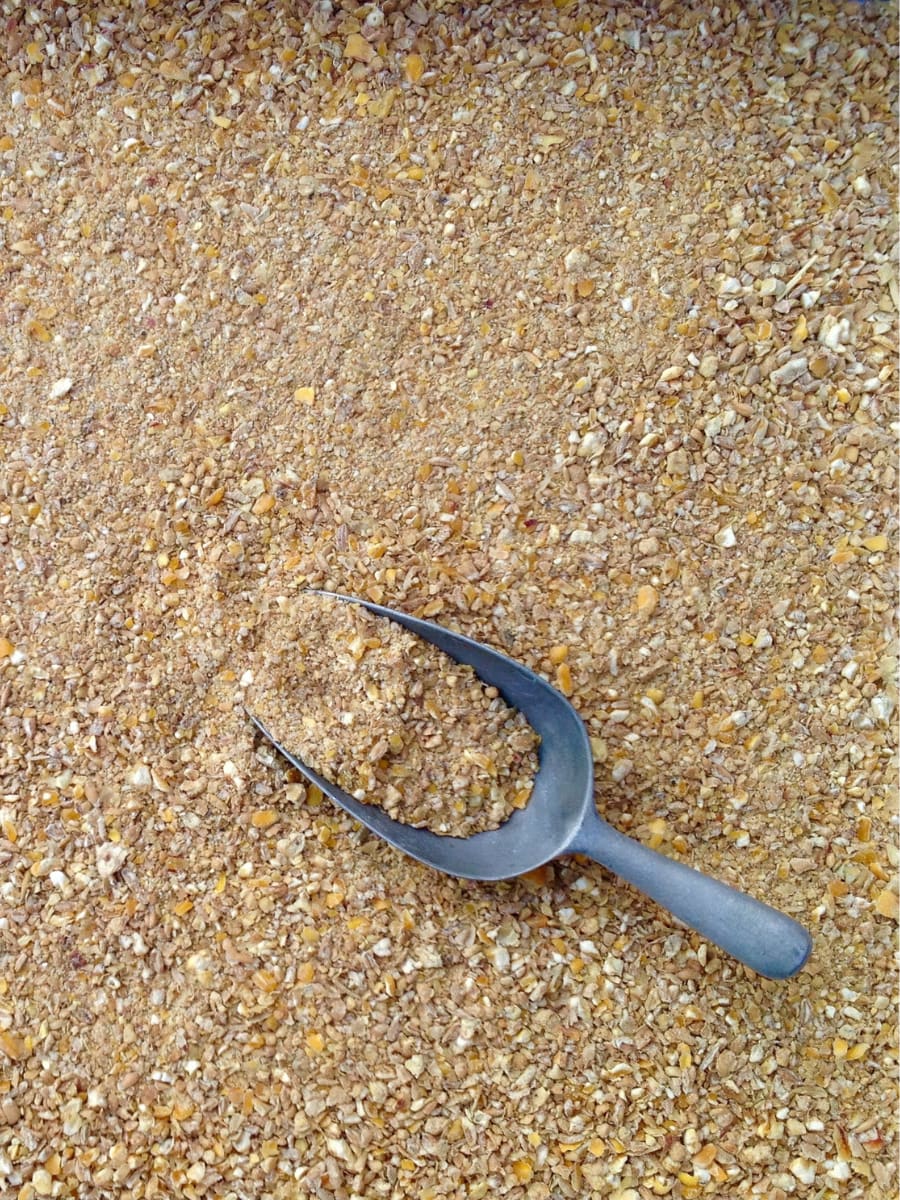
Nutrition for your backyard birds can be boiled down to six components: fats, proteins, carbohydrates, vitamins, minerals and water. Although concentrations may vary based on the bird’s purpose, specifically meat birds versus laying hens, all poultry diets are composed with these things in mind.
1. Water
Water is the first—and arguably most important—nutrient for a growing bird. It plays a role in regulating body temperature, softening food to aid in digestion and eliminating wastes. A water shortage can lead to reduced egg production among other issues, so it's essential to provide your birds with ample water at all times.
2. Carbohydrates
Following water, carbohydrates make up the next largest portion of a poultry diet. As a required fuel source for all living cells, these simple and complex sugars offer a quick source of energy.
3. Fats
Fats, such as vegetable oils, are another important source of usable energy to your birds and allow for the absorption of fat-soluble vitamins A, D, E and K.
4. Proteins
As outlined in UGA Extension's publication, "Proteins are large molecules that are built by arranging 20 different amino acids. The bird's biological need is for these individual amino acids. A bird is able to make 10 of these amino acids from other compounds, but the other 10 must be present in the proteins of their feed ingredients..."
Proteins are used in the construction of muscles, nerves, cartilage, skin and feathers. On feed labels, you'll find the feed's protein content listed as "crude protein." Soybean meal is a common source of plant protein found in chicken feed, and animal proteins, such as fish meal and bone meal, are used less commonly.
5. Minerals
Minerals are some of the smallest players in the diet, but they have tremendous impacts on bone formation, blood clotting, enzyme activation and metabolism.
6. Vitamins
Last but certainly not least, vitamins are organic compounds that fulfill numerous roles and responsibilities in the body from reproductive health to blood clotting.
Luckily, none of us are formulating rations for the birds in our coops, but it's always nice to understand exactly what we're feeding our birds. Nutritional requirements are determined based on age and poultry type. For most of you, your coop is filled with layers of varying breeds, so let’s focus on diets as your layers grow.
Layer Chicken Feed Requirements
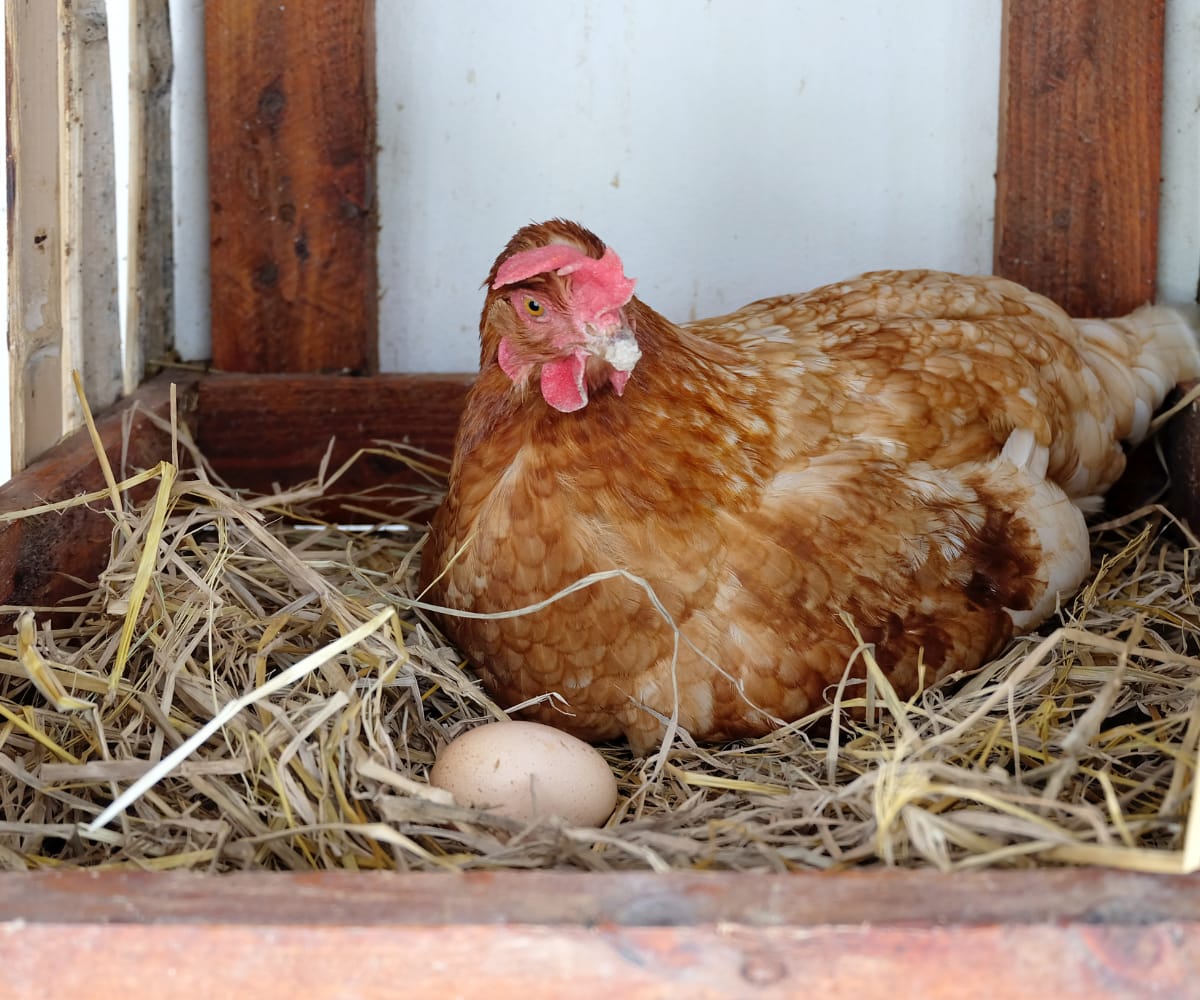
Young female chicks, or pullets, are fed what's called a "starter diet." Starter diets are typically fed to chicks from hatch until about week 16 to 20. To ensure that the diet accommodates for the chick’s astronomical growth during those first several months, starter feed is characteristically high in protein at about 20%. Starter diets are often in the form of crumbles rather than pellets. That way, the feed is easier for the birds to access and digest.
Starter diets may be offered in “medicated” versions. In most cases, this means that the medicated feed contains a cocci preventative. Cocci are a protozoal parasite common in birds. Simply put, they infect the intestines of the bird and impair digestion.
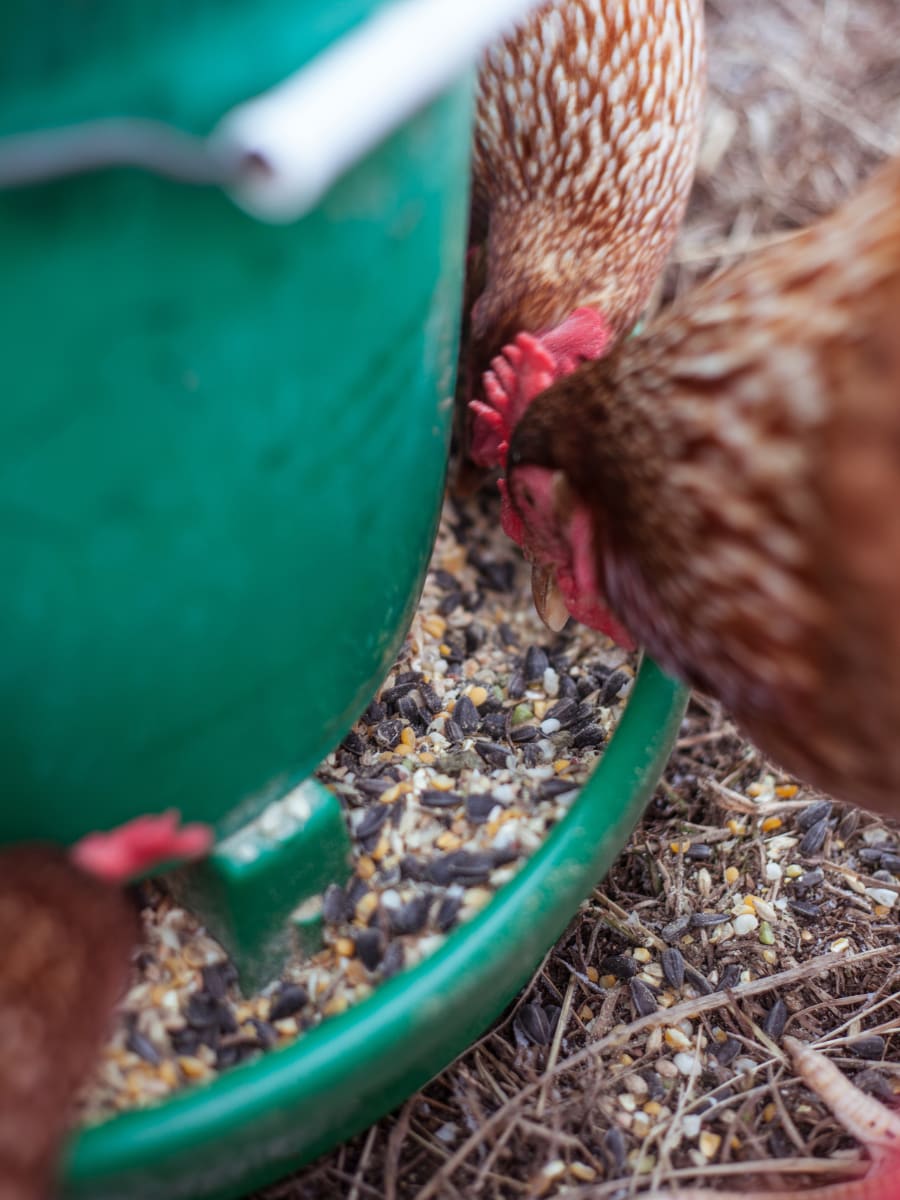
Around week 16 to 20, laying hens reach sexual maturity and prepare to lay their first eggs. At this stage, it's safe to transition your birds to a layer diet. These diets are significantly lower in protein content, which means that the birds will need to be weaned onto their new feed.
To do this, simply mix the new layer diet with the old starter diet at decreasing amounts over about a week. This will ensure that no intestinal distress follows the change. The feed change period is also a good time to consider adding a digestive supplement to their diet to alleviate the stress of both the diet change and the onset of laying. (Hen Helper Probiotics and Electrolytes and Mother Load Apple Cider Vinegar are, of course, our top picks!)
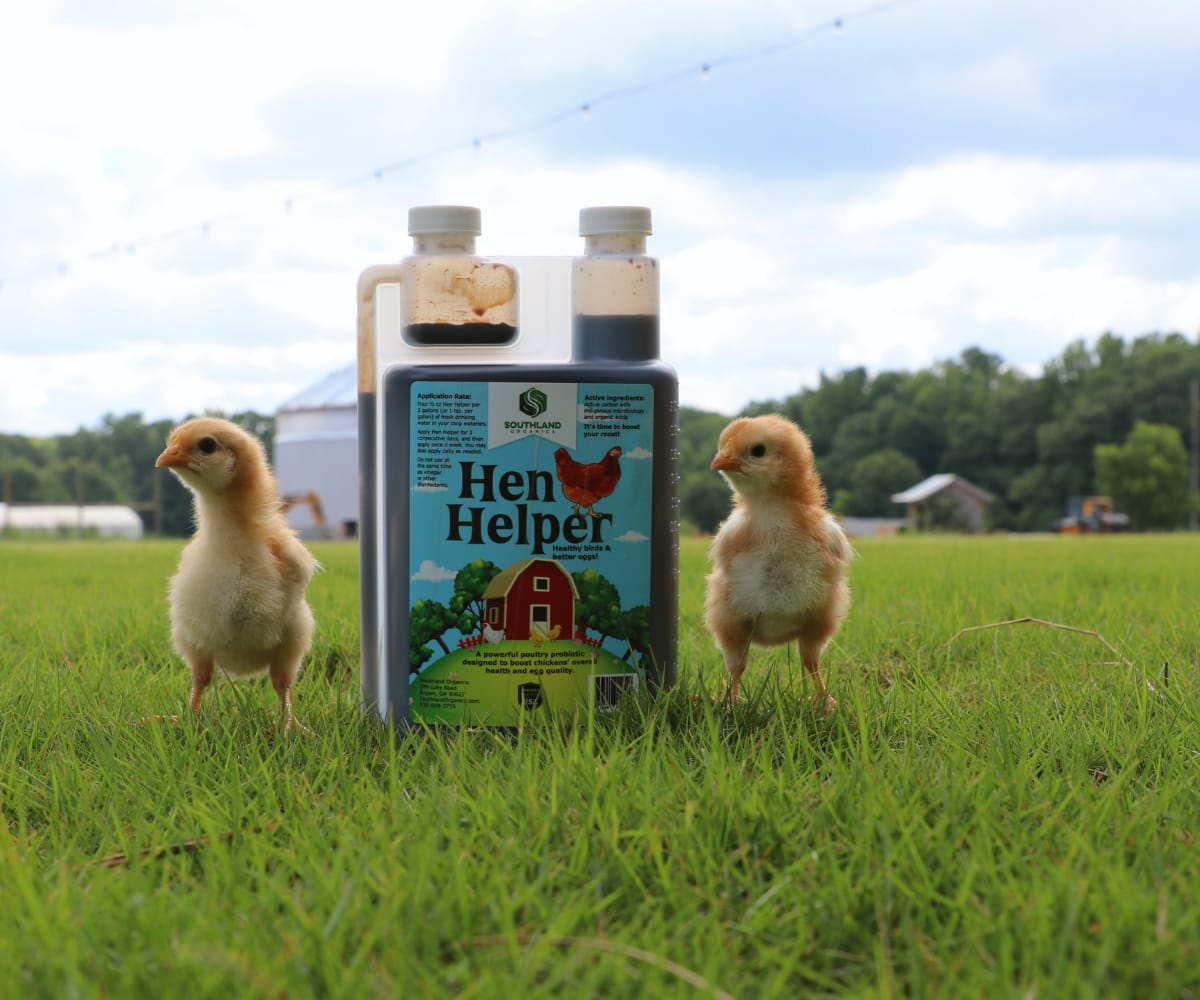
Although lower in protein than starter diets, layer diets contain higher amounts of calcium and phosphorus to ensure that a laying hen never experiences a mineral deficiency. Calcium and phosphorus are both important factors in bone formation, which is affected by the onset of laying. Layer feed can be found in the form of crumbles, pellets or mash.
Adding Vitamins to Poultry Diets
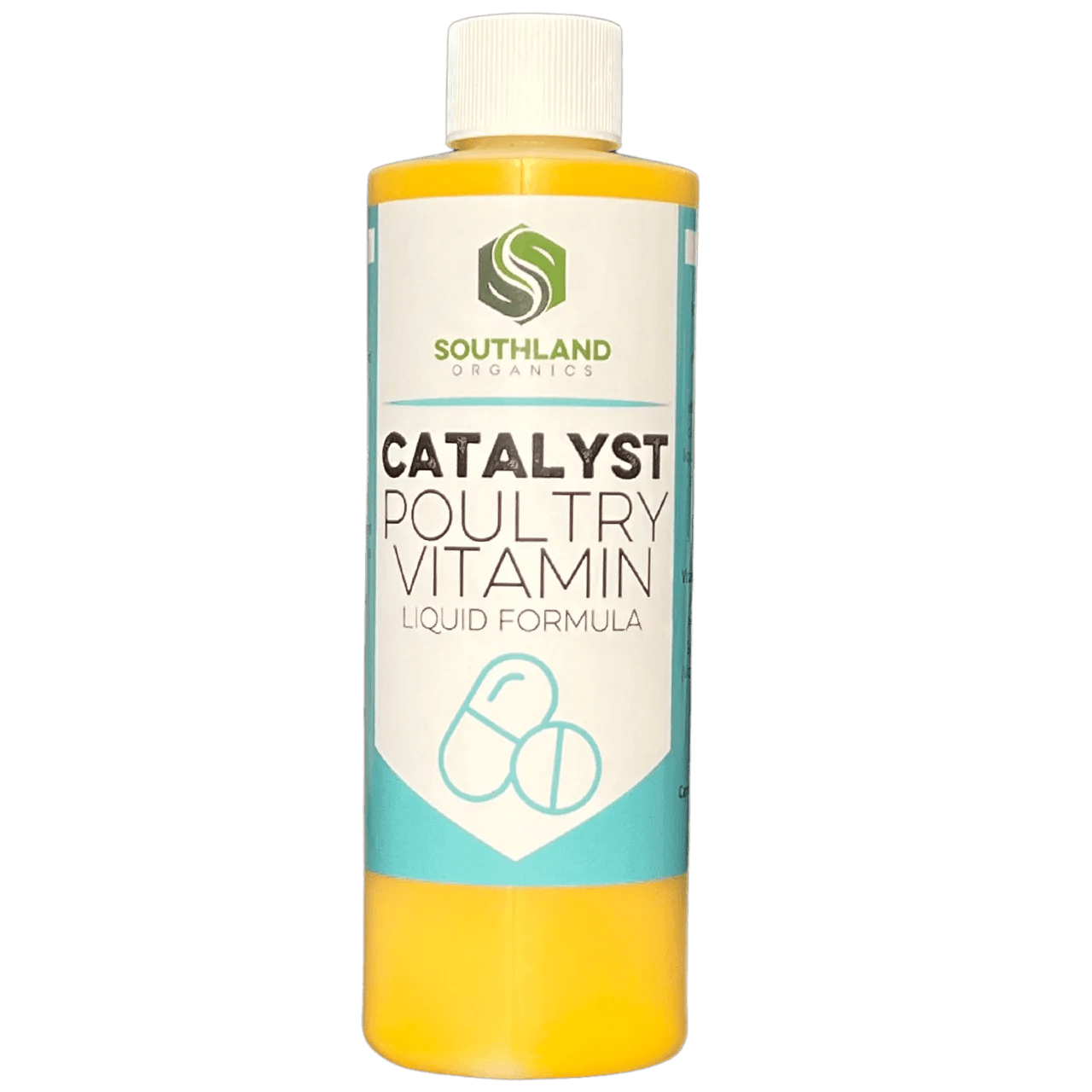
Although poultry diets are specifically formulated to ensure that your birds get all the nutrients they need through their feed consumption, laying can be extremely demanding for any bird. When we feed chickens a proper balance of essential amino acids, fatty acids, water-soluble vitamins and fat-soluble vitamins, the birds' immune systems are greatly strengthened, and the immune response to diseases and other challenges is increased.
Because of this, it's always a good idea to give your birds a multivitamin with phosphorus, folic acids, vitamin K and vitamin D to encourage proper calcium metabolism and reproductive health. These vitamins (and more!) can be found in our Catalyst Poultry Vitamin. Designed with a liquid formula for easy application, Catalyst is simply added to your coop waterer once per week to help your birds thrive.
What about scratch grains?
Considered a treat for chickens, scratch grains typically consist of cracked, rolled or whole grains, such as corn and wheat. Scratch grains don't contain all the nutrients that chickens require, so they should be given in limited amounts—and never as the main feed. But just like for us humans, it's always fun to have an occasional treat!
Contact Us
As you raise your backyard birds:
-
Make sure that you're providing them with the feed best suited for their age.
-
Consider giving them supplements to help them through transitional times and laying.
With these tips in your chicken-keeper toolbox, you’ll be one step closer to the happy and healthy flock we're all after! If you have any questions about nutrition for your feathered friends, feel free to reach out to [email protected] or 800-608-3755. Subscribe to our YouTube channel so you don’t miss any of our videos on raising backyard chickens, gardening, lawn care and more.








